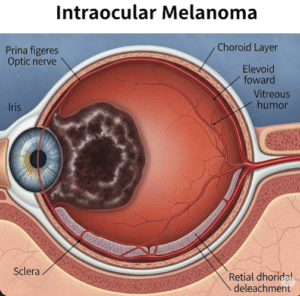Overview
Unexplained weight loss refers to a significant decrease in body weight that occurs without intentional dieting, increased exercise, or lifestyle changes. Unlike planned weight loss, this symptom often signals underlying health issues.
Unexplained weight loss can affect adults and children alike and may be gradual or rapid. It can indicate endocrine disorders, digestive diseases, infections, malignancies, or psychological conditions. Identifying the root cause early is essential, as it can prevent complications and improve overall health.
➤ Even a seemingly small, steady drop in weight may be a warning sign of serious illness.
➤ Causes range from metabolic imbalances to chronic diseases.
➤ South Korea offers advanced diagnostics and treatments, making it a leading destination for patients experiencing unexplained weight loss.
Key Facts
► Definition: Unintentional decrease in body weight without lifestyle changes.
► Common causes: Diabetes, hyperthyroidism, infections, gastrointestinal disorders, cancers, psychological conditions.
► Symptoms often accompanying weight loss: Fatigue, weakness, appetite loss, digestive changes.
► At-risk groups: Adults over 50, individuals with chronic illness, patients on medications affecting metabolism.
► Treatment in Korea: Comprehensive testing, integrative care, advanced therapeutic interventions.
What is Unexplained Weight Loss?
Unexplained weight loss is a symptom, not a disease, indicating the body is losing fat, muscle, or fluids abnormally.
➔ It occurs when caloric expenditure exceeds intake due to illness or metabolic changes.
➔ Can be sudden or gradual, depending on the cause.
➔ Often associated with additional signs like weakness, fatigue, or organ dysfunction.
Because it may signal serious medical conditions, a thorough medical evaluation is recommended for anyone experiencing this symptom.
What Symptoms Are Related to Unexplained Weight Loss?
Unexplained weight loss may be accompanied by other symptoms, depending on its cause:
→ Fatigue and weakness due to nutrient deficiencies or metabolic changes.
→ Loss of appetite or early satiety.
→ Digestive issues, such as nausea, vomiting, diarrhea, or abdominal pain.
→ Fever, night sweats, or recurrent infections, suggesting infection or immune disorders.
→ Mood changes, including depression or anxiety.
→ Hair thinning, dry skin, or brittle nails, often linked to endocrine disorders.
→ Muscle wasting or frailty in prolonged weight loss cases.
Causes / Possible Causes of Unexplained Weight Loss
Endocrine and Metabolic Causes
➤ Hyperthyroidism: Excess thyroid hormone increases metabolism, leading to weight loss despite normal or increased appetite.
➤ Diabetes mellitus: Poorly controlled diabetes can result in weight loss due to fat and muscle breakdown.
➤ Adrenal insufficiency: Low cortisol levels can reduce appetite and increase catabolism.
Gastrointestinal Causes
➔ Malabsorption syndromes such as celiac disease or Crohn’s disease.
➔ Chronic pancreatitis affecting nutrient absorption.
➔ Peptic ulcers or gastrointestinal cancers reducing caloric intake.
Infections and Chronic Diseases
→ Tuberculosis, HIV, and chronic viral infections.
→ Chronic heart failure, liver disease, or kidney failure.
→ Autoimmune disorders causing chronic inflammation and nutrient loss.
Cancer-Related Causes
► Solid tumors (stomach, pancreas, lung) may reduce appetite and metabolism.
► Blood cancers such as leukemia or lymphoma may cause rapid weight loss and fatigue.
Psychological and Lifestyle Causes
➤ Depression or anxiety leading to reduced appetite.
➤ Eating disorders such as anorexia nervosa or bulimia.
➤ Substance abuse, including alcohol or drugs affecting nutrient intake.
Medication-Induced Causes
→ Chemotherapy or certain medications reducing appetite.
→ Drugs affecting metabolism or gastrointestinal function.
When Should I See My Doctor?
Unexplained weight loss can indicate serious illness. Seek medical attention if:
➤ Losing more than 5% of body weight in 6–12 months without trying.
➤ Accompanied by persistent fatigue, fever, or night sweats.
➤ Appetite loss, digestive issues, or chronic pain develop.
➤ Weakness, muscle loss, or frailty occurs.
➤ Any sudden or rapid weight loss happens without clear reason.
Early consultation allows timely diagnosis and treatment, which can prevent progression of underlying diseases.
Care and Treatment
Lifestyle and Nutritional Support
► Balanced, nutrient-rich diet to prevent malnutrition.
► Adequate protein intake to preserve muscle mass.
► Small, frequent meals for patients with early satiety or digestive issues.
► Monitoring weight and nutritional status regularly.
Medical Treatments
➔ Treat underlying cause: thyroid medications, diabetes management, infection treatment, or cancer therapy.
➔ Supplements for vitamin and mineral deficiencies.
➔ Appetite stimulants in select cases.
Psychological and Behavioral Support
→ Counseling for eating disorders, depression, or anxiety.
→ Cognitive-behavioral therapy (CBT) to improve eating habits and mental health.
→ Support groups for chronic illness or cancer patients.
Treatment Options in Korea
South Korea is known for its integrated medical approach, combining advanced diagnostics, personalized care, and innovative therapies.
Diagnosis in Korea
➤ Comprehensive blood panels to assess metabolic, thyroid, and endocrine function.
➤ Imaging (CT, MRI, ultrasound) to detect hidden cancers or organ dysfunction.
➤ Gastrointestinal endoscopy for digestive disorders.
➤ Genetic and metabolic testing for rare causes of weight loss.
Non-Surgical Care
► Nutrition counseling and individualized diet plans.
► Medical management for hormonal, metabolic, or infectious conditions.
► Rehabilitation programs to restore energy, muscle mass, and strength.
Surgical & Advanced Therapies
➔ Minimally invasive surgery for gastrointestinal or cancer-related causes.
➔ Robotic-assisted tumor removal when indicated.
➔ Hormone therapy or endocrine interventions for metabolic disorders.
Rehabilitation and Support
→ Physical therapy and exercise programs to rebuild strength.
→ Long-term follow-up for chronic illness or post-surgery recovery.
→ Digital health monitoring and telemedicine consultations for continuity of care.
Korean hospitals provide high-quality, patient-centered care with access to cutting-edge technology, making them an ideal choice for patients facing unexplained weight loss.













